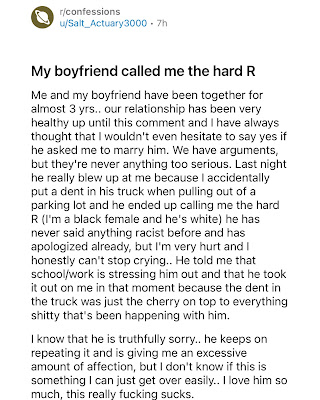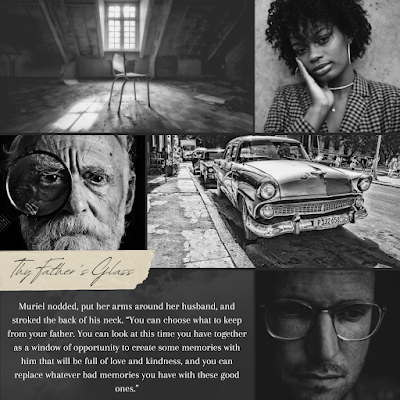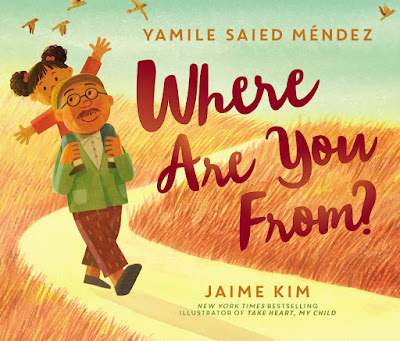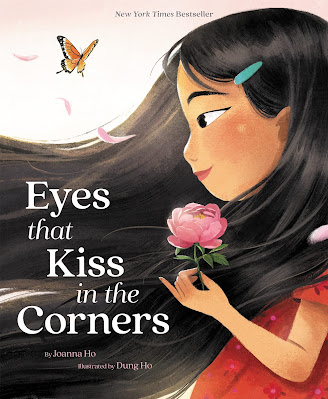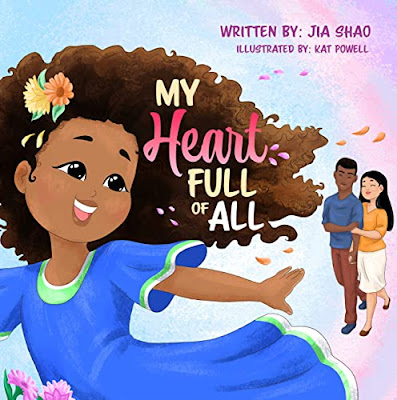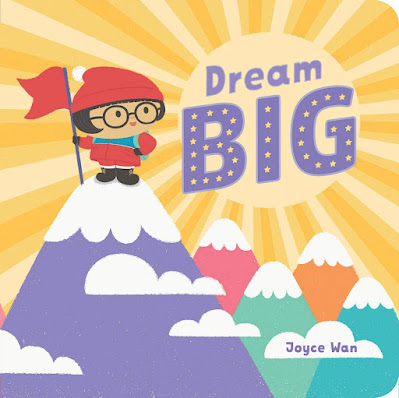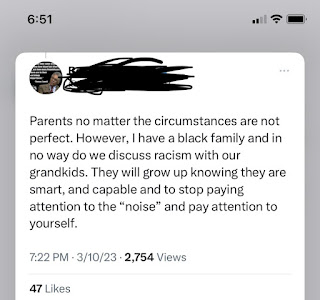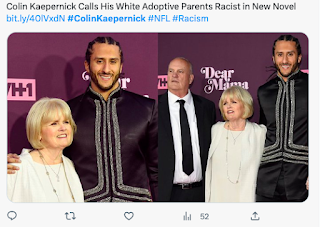As hard as it is for me to believe, but my debut novel releases on Tuesday! It's been a long process, with a lot of work, rejection, and imposter's syndrome along the way, but the big day is just around the corner. To celebrate (and maybe entice some readers to buy a copy) here's a scene from the novel.
Dane had already made three orderly piles of clothes on the bed and had started to pack when Muriel got home from the gym. He told her what Sabine had said and that his father needed him to stay over for a while.
“It happened that way with my grandfather.” Muriel helped Dane pack an overnight bag. “I was almost ten, and that was back in Haiti, but I remember it was just like this.”
Dane went to the bathroom and scooped his toiletries into a blue drawstring bag with some faded company logo on it.
“I remember being very sad about it. He lived with us,” she continued. “A lot of people had their grandparents with them back then. It was like he was . . .” She sat down on the bed, rolled a pair of jeans into a tight tube, and shoved them into the bottom of Dane’s backpack, “Like he was disappearing in front of you, a little at a time, until he was gone.”
Dane cinched the bag with his deodorant and shaving tools in it and sat down next to Muriel, his shoulder up against hers. She stopped folding his T-shirt and rubbed the back of his hand.
“He’s a completely different man,” Dane said. “I don’t know how this happened so fast.”
“The doctors did say it was coming. We were all so focused on Mom for so long, I guess . . .”
“But I can’t even say I really knew him before. Now what?” Dane took the shirt from Muriel’s lap and started rolling it tightly. She took another from the pile on the bed behind her and folded it into fourths.
“You know, my dad and my grandfather never got along,” Muriel said, smoothing out the folded shirt and handing it to Dane. “Papa only ever had bad things to say about his father—he was stingy, he was rough—but I don’t remember any of that. People change when they get this way—a lot. I know other families who went through it, and it seems like there are always two ways people change: they either get really mean and difficult, or they get really sweet and gentle.
“My father knew his father all his life as a hard man, strict to the point of being mean. But all I remember of him was him sitting with me on the couch, all hugs and kisses, being so grateful for anything I did for him. He didn’t always know who I was, but I knew he loved me.” She pushed socks into the front pouch of the backpack until she could barely zip it closed.
“Once a man, twice a child?” Dane smirked.
Muriel whipped him with a pair of his own underwear. “Did Sabine tell you that?”
Dane nodded. “Pop was like that too,” he said, rubbing his eyes with the backs of his hands. “Then he wasn’t much of anything. He worked a lot, I guess, and when he wasn’t working, he wasn’t interested in much of anything I did. You’ve never really met the man.”
Muriel nodded, put her arms around her husband, and stroked the back of his neck. “You can choose what to keep from your father. You can look at this time you have together as a window of opportunity to create some memories with him that will be full of love and kindness, and you can replace whatever bad memories you have with these good ones.”
Dane turned his head and kissed her, wishing she could come with him, wondering how he would sleep in the old house, in his old room, without her. Even worse, no matter how hopeful Muriel tried to make it sound, he dreaded the prospect of so much time cooped up with his father. He tried to create a picture in his head of what it would look like to spend that much time with the old man, and nothing but torture came to mind.
Conversation between them had always been strained and awkward, and now the Alzheimer’s made it nearly impossible. What would they do? Just sit around and stare out the window together? Listen to fifties music on the radio and tap their feet in time? Binge-watch Gunsmoke until they fell asleep? A dispassionate sense of duty compelled him to go through the motions, but he felt no real desire to do it.
Dane and Muriel had never had kids, never wanted to, but he imagined it would feel a lot like this. Before Sabine had left for the day, she had cooked enough rice and beans and stewed chicken for them all, plus enough for later if the men got hungry. She had also walked Dane around the house and shown him her protocols for getting Branson ready for the night.
He wasn’t so badly off that he couldn’t bathe himself, thank goodness, but if nobody reminded him, he would go days without taking a shower. Make sure to lock all the doors around the house and hide things you don’t want him to get into.
Fortunately, Branson was a tall man who couldn’t bother to bend over for anything, so putting dangerous items on lower shelves and the backs of floor-level cabinets kept them out of his reach. Make sure he had everything he might need—water, light, books, remote controls—by his bed in plain sight. Think of his mental acuity like a power grid, Sabine said. Too much stimulus, too many stressors, and the whole thing would overload and short out for a while.
“He needs his picture of Miss Gwen by his bed, his bottle of water on the nightstand,” she said. “You don’t want him waking up in the night and wandering around the house looking for something.”
“Check,” Dane said, “Everything in its place.”
Sabine nodded. She stepped closer and looked up into Dane’s face, touching his arm to command his attention. “It’s more than that,” she said, dropping the pitch of her voice. “The way his disease is progressing so rapidly, there’s a chance he could wake up and not know where, or even when he is. Try to look at it from his point of view, how terrifying that could be.”
Dane’s shoulders drooped and he searched Sabine’s face. “You think that could happen?”
Sabine patted his arm and dropped her hand, still holding Dane’s gaze. “It’s going to happen, Dane. The plan is to minimize his stress and confusion in any way possible, keep his grid functioning.”
The sheer urgency of Sabine’s instructions overwhelmed Dane, but she tried to bring him back into focus. It didn’t seem as if he woke up much in the night. He usually settled down for bed when she left at six and got up to sit in his chair, sometimes still in his pajamas, by the time she arrived at nine in the morning. He would sometimes take a short nap in the day, but Sabine said she kept him up and active as much as possible during the day to make sure he slept through the night since he was on his own.
“You make it sound like we’re prepping a house for a toddler,” Dane chuckled awkwardly.
Sabine agreed. “Once a man, twice a child,” she said, solemnly.
Once he walked through Sabine’s instructions meticulously, and left Branson safely in bed sleeping, soundly, judging by the loud raspy noise coming through the door, Dane felt unsure what to do with himself. It was the same house he had grown up in, his old room, the kitchen he had plundered for the first eighteen years of his life. But now it felt foreign, as if he were some interloper, some shadow creeping up the stairs and stalking the quiet rooms.
He checked and rechecked the door locks, cracked the door to his father’s bedroom, and peeked through the sliver of space to make sure he was sleeping, which he always was, every time. The loud snoring actually reassured him, and he didn’t know what he would do if the droning sound stopped.
He didn’t dare turn on the television for fear of waking up or, even worse, alarming his father, but he had brought some books. After deciding to sleep on the couch instead of his old room, he remembered to check the attic window to maintain readiness.
Dane had a vision that made him shiver as he crept upstairs to the attic. He saw his father laughing and leaning out of the open window, with nobody there to stop him or pull him back in. Checking and rechecking the lock put him more at ease, but he wanted more security than the little turning sash lock could provide.
There wasn’t much left up there since he had cleared it out—the empty bookcases, a few crates, a broom and dustpan, and some folding chairs—but he placed every object strategically to get in an old man’s way if he should try to get to the window.
Brooms would crash to the floor if the door opened, crates would topple over and clatter, and metal chairs would have to be relocated just to get in front of the window. As he stood surveying his work, he felt a little pride over what he had done, enough confidence to help him fall asleep tonight.
Still, he needed to check the window lock again. The feeling of having forgotten something or of having left the stove on after going to work compelled him to take one last look and reassure himself that he could rest for the night. He tiptoed around the crates and chairs so he wouldn’t have to reset the trap and turned the lock as far as it would go.
The window gave a wide, pleasant view of the neighborhood. He could see why his father liked sitting there, even if he did seem to lose himself in a weird way. He got his face as close to the glass as he could and tried to see how far he could look down both sides of the sleepy suburban street. A sort of dizzy feeling came over him as he leaned into the window, as if the height of his vantage point or the memory of his father’s near accident disturbed his sense of ease. Blinking his eyes rapidly to shake off the queasy feeling, he settled back on his heels and looked through the window again.
Neatly mown and manicured lawns all the way down to each corner showed how much pride and love the neighbors had for their homes. Some houses still had lights on, mostly upstairs, but a lot had gone completely dark already.
Many of the houses had the same layout, in three or four different variations, and some were exactly like the Shottmers’, although none of them had the round window like the one he looked through. Not much had changed since he had played in those yards and taken the bus to school from that corner.
One thing seemed out of place. Someone had parked an old black car in front of the Shottmers’ house. Not just old, but classic, like the cars in black-and-white movies from the forties and fifties. To Dane, it looked like a specific one he remembered from somewhere, a Buick, or maybe a Pontiac, but he didn’t really know much about modern cars, much less ones from over a half-century ago.
Still, it was one of the most beautiful cars he had seen. The rounded hood looked like a bullet or a torpedo, the smooth curve from the back to the front, ending in the raised headlights like eyes on either side. And whoever owned kept it so well maintained, it looked brand-new. The black paint glowed underneath the streetlight. He could barely spare a thought to wonder why someone would park on his side of the street or whose car it could be when he saw something else that made him feel dizzy all over again.
His father was walking across the lawn toward the car.
“No,” Dane muttered under his breath. “Dammit, no, no, no.”
He tried not to yell or make a ruckus that might startle his father, but he skipped every other step as he ran downstairs. The vision of his father wandering the streets at night plagued him until he burst through the front door and leaped off the porch onto the lawn. Once his feet touched the grass, he stopped so suddenly he almost flopped forward. He stood there in the creeping darkness of late evening and looked around.
There was nobody there—no car parked on the street, no father in the yard.
He turned to the left and saw his own car parked at the end of the driveway, all the way over to the side to leave room for Sabine to park in the morning. He turned toward the house and then back to the street again, confused and alarmed.
Could someone have taken his father? A car that old would have made some noise for sure, but maybe he missed it in his panic. Was his father’s door open as he ran downstairs? He dashed back into the house and closed the front door, more quietly than he had run out of it, half sensing what he would find on the second floor.
His father’s bedroom door was closed. For at least the fifth time tonight, Dane opened it just enough to peek through, but he didn’t even have to look to know his father was still in there and still sleeping. The unbroken drone of his snoring confirmed it.
Dane wobbled a little, as if he had stood up too fast, and felt his way back to the attic stairway behind him, eyes still on the cracked doorway with his father sleeping on the other side. He carefully dropped onto the second step, his breath coming heavy now, and tried to slow his heart rate the way he had learned to do during an important basketball game.
Once he felt steady, he closed the bedroom door and crept back up to the attic. Everything just as he’d left it. He again maneuvered around his traps and looked through the window. The black car was back, and his father leaned into the passenger’s seat, rummaging through the glove box.
He closed his eyes for a moment or two and then looked again, but nothing had changed. True, the darkness of the late evening made it difficult to see the yard, but there was no mistaking his father’s stature framed in the light from the car’s interior—his sharp shoulders, long neck, and his gray hair cropped close. He opened the window as quietly as he could, as if, for some reason, he thought the car and the man might disappear.
They didn’t. Through the open window, he could see them even more clearly. He thought about calling down there, but he couldn’t wrap his head around the situation enough to worry whether he would be startling his father, waking him up, or shouting at someone else entirely.
After a few more moments of staring, he closed and locked the window, and as he backed away, tripping over one of the crates he had set for his father, he could still see the old black car, still see the man now sitting in the passenger’s seat rifling through some papers.
He couldn’t feel his feet touch the floor as he walked soundlessly down to the second floor and approached his father’s bedroom again. He opened the door all the way this time, slowly, quietly, and entered the room. He crept over to the bed, where his father still lay sleeping and snoring, looked down into his face, and then parted the curtains and looked out the window.
No car, no man.
He stood there for some time, watching. Afterward, he had no idea how long the window had held him there, peering into the yard. He couldn’t recall how he had gotten out of the attic and back downstairs. All he remembered after standing silently above his father’s sleeping form was sitting on the couch and staring through the front window at the empty yard until he fell asleep, wondering how to talk to his father about all this tomorrow.
Thanks for reading! If you like what you see, please order Thy Father's Glass, releasing Tuesday, May 9.
